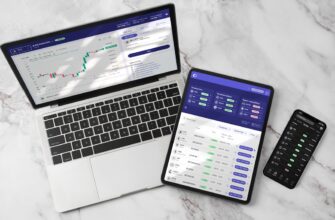Introduction
With Nigeria emerging as a global hotspot for cryptocurrency adoption, free token distributions called “airdrops” have surged in popularity. As we approach 2025, Nigerian crypto enthusiasts face a critical question: Is airdrop income taxable? This guide breaks down Nigeria’s evolving tax landscape, leveraging current regulations and 2025 projections to help you stay compliant. Understanding these rules now could save you from penalties later.
What Are Crypto Airdrops?
Airdrops involve free distributions of cryptocurrency tokens or NFTs to user wallets, typically to promote new projects or reward community engagement. For example:
- Standard Airdrops: Tokens sent automatically to holders of specific cryptocurrencies.
- Bounty Airdrops: Rewards for completing social media tasks or referrals.
- Holder Airdrops: Distributions based on existing token balances (e.g., Uniswap’s 2020 UNI drop).
In Nigeria, airdrops gained traction during the 2021-2023 bull market, with platforms like Binance and Quidax facilitating widespread participation.
Nigerian Tax Laws and Cryptocurrency in 2025
Nigeria’s tax framework for crypto is anchored in the Finance Act 2023, which classifies digital assets as taxable property. Key points:
- Capital Gains Tax (CGT): Applies at 10% on profits from crypto sales.
- Income Tax: Ordinary income (like airdrops) taxed at progressive rates up to 24% for individuals.
- 2025 Projections: The Federal Inland Revenue Service (FIRS) is expected to tighten enforcement, with draft guidelines suggesting stricter reporting for all crypto transactions, including airdrops.
The Securities and Exchange Commission (SEC) also mandates that crypto exchanges share user data with tax authorities, making non-compliance riskier by 2025.
Is Airdrop Income Taxable in Nigeria in 2025?
Yes, airdrop income is likely taxable in Nigeria under current and projected 2025 rules. Here’s why:
- Airdrops are classified as ordinary income upon receipt, based on fair market value at distribution time.
- If you later sell the tokens, additional Capital Gains Tax applies to profits exceeding the initial value.
- Exceptions are rare—even “free” tokens from marketing campaigns are taxable if they hold monetary value.
Example: If you receive an airdrop worth ₦50,000 in January 2025, you owe income tax on that amount. Selling it later for ₦80,000 triggers CGT on the ₦30,000 gain.
How to Report Airdrop Income in Nigeria
Follow these steps for 2025 compliance:
- Value the Airdrop: Calculate its Naira value using exchange rates at receipt time (e.g., via Binance or Luno).
- Document Everything: Save wallet records, distribution dates, and token amounts.
- File with FIRS: Report as “Other Income” on your annual tax return (Form 000 for individuals).
- Pay Applicable Taxes: Income tax if held; CGT if sold at a profit. Use FIRS’s e-tax portal for payments.
Tip: Use crypto tax software like CoinTracker or Koinly (Nigeria-compatible versions) to automate calculations.
Penalties for Non-Compliance
Failing to report airdrop income risks severe consequences:
- Fines: Up to 10% of the unpaid tax + 21% annual interest.
- Legal Action: FIRS can freeze bank accounts or pursue criminal charges for evasion.
- Audit Triggers: Large/unreported crypto transactions may flag your account for scrutiny.
With Nigeria’s push for tighter crypto oversight by 2025, transparency is non-negotiable.
Frequently Asked Questions (FAQ)
Q1: What tax rate applies to airdrop income in Nigeria?
A: If classified as income (common for most airdrops), rates range from 7% to 24% based on your earnings bracket. Capital gains from sales are taxed at a flat 10%.
Q2: Do I pay tax if I don’t sell the airdropped tokens?
A: Yes. Tax is due on the token’s market value at the time you receive it, regardless of whether you sell.
Q3: How do I value airdrops in Naira for taxes?
A: Use the token’s price on a major exchange (e.g., Binance) at the exact time of receipt, converted to Naira via the day’s exchange rate.
Q4: Are small airdrops (under ₦10,000) taxable?
A: Yes. Nigeria has no minimum threshold for crypto income—all airdrops must be reported.
Q5: Where can I get help with crypto taxes in Nigeria?
A: Consult FIRS-approved tax advisors or use platforms like Taxaide Technologies. FIRS also offers free webinars on digital asset compliance.
Conclusion
In 2025, Nigerian crypto users must treat airdrops as taxable income, with FIRS poised to intensify enforcement. By documenting transactions, valuing tokens accurately, and filing promptly, you can avoid penalties while legally maximizing your crypto gains. Always consult a tax professional for personalized advice, as regulations may evolve. Stay informed, stay compliant, and turn your airdrop windfalls into sustainable wealth.








